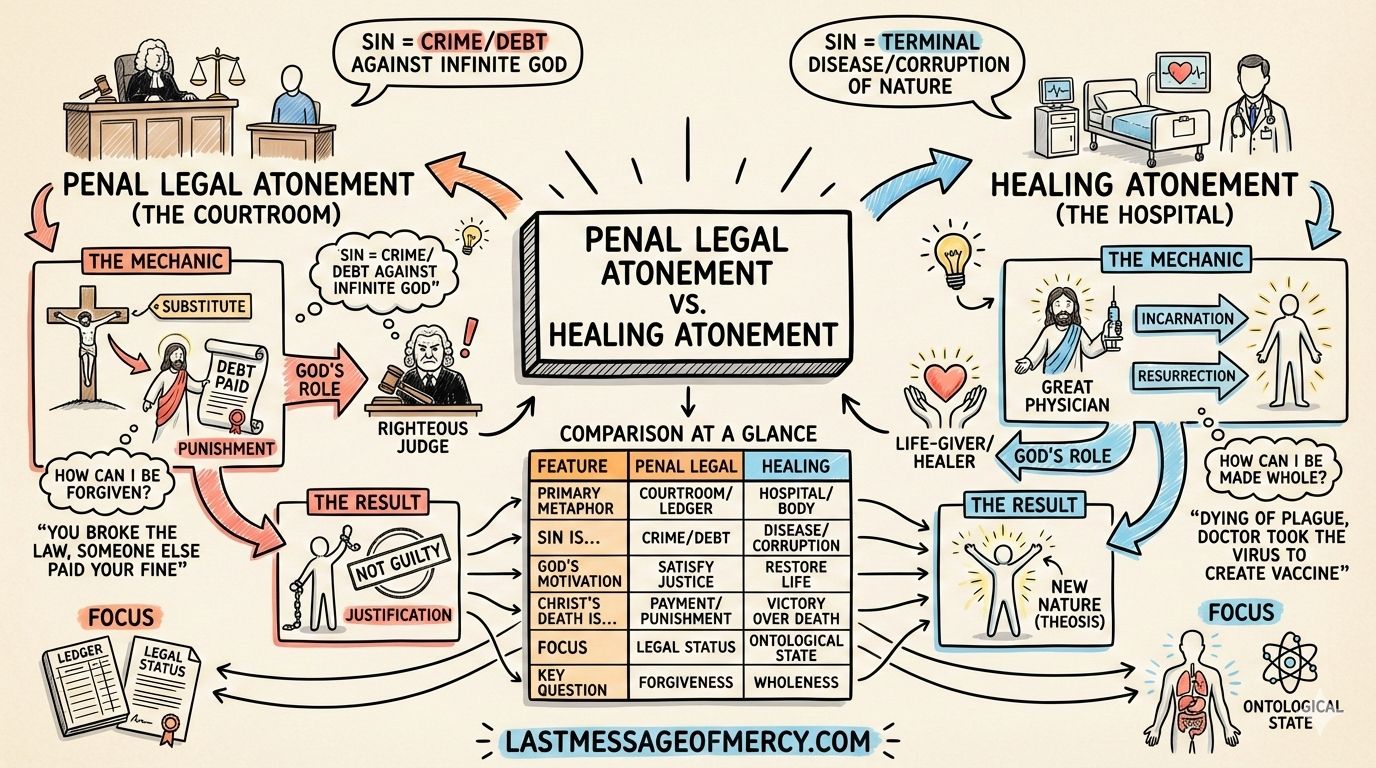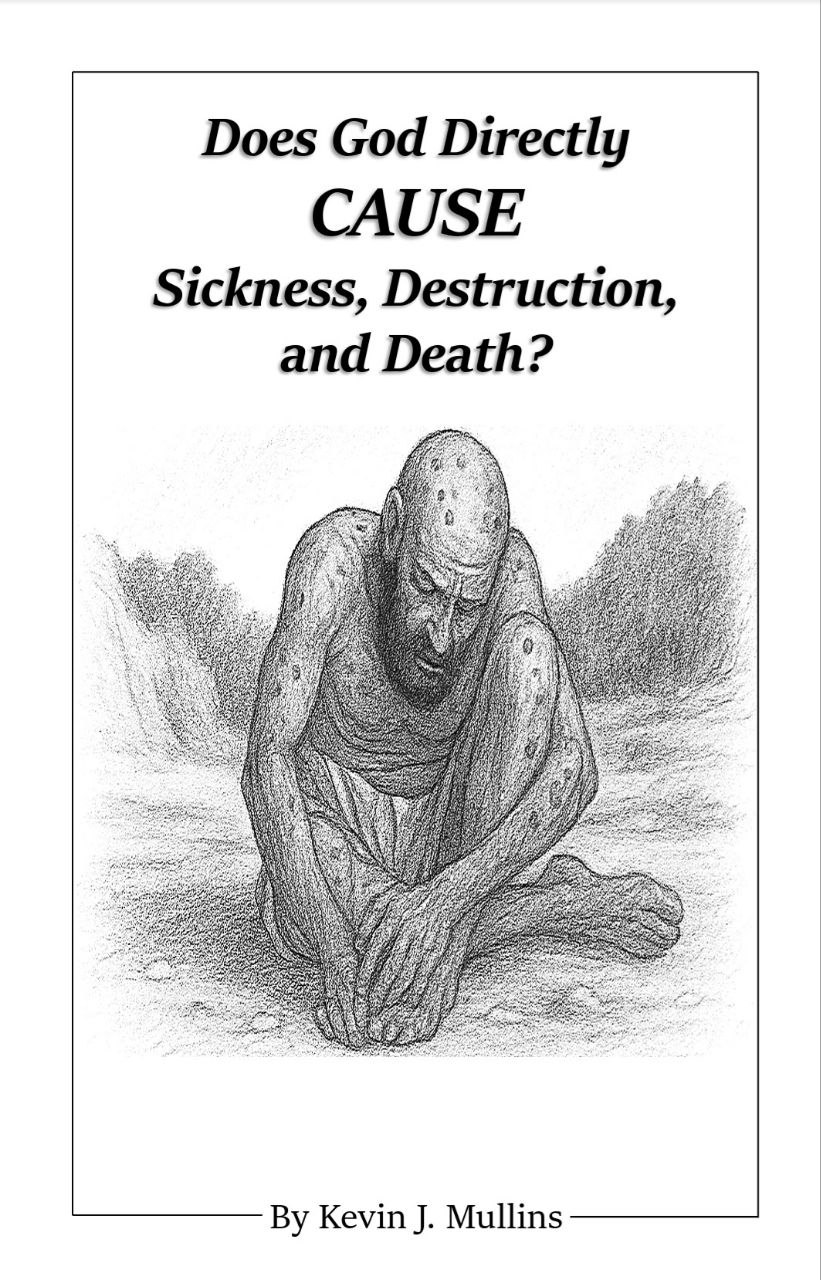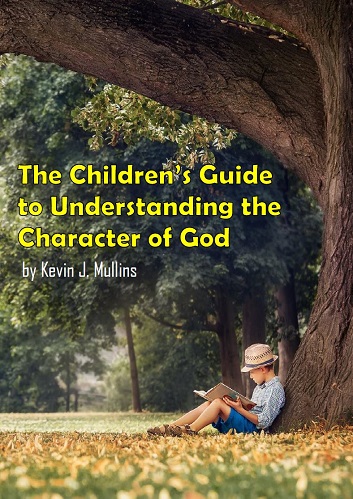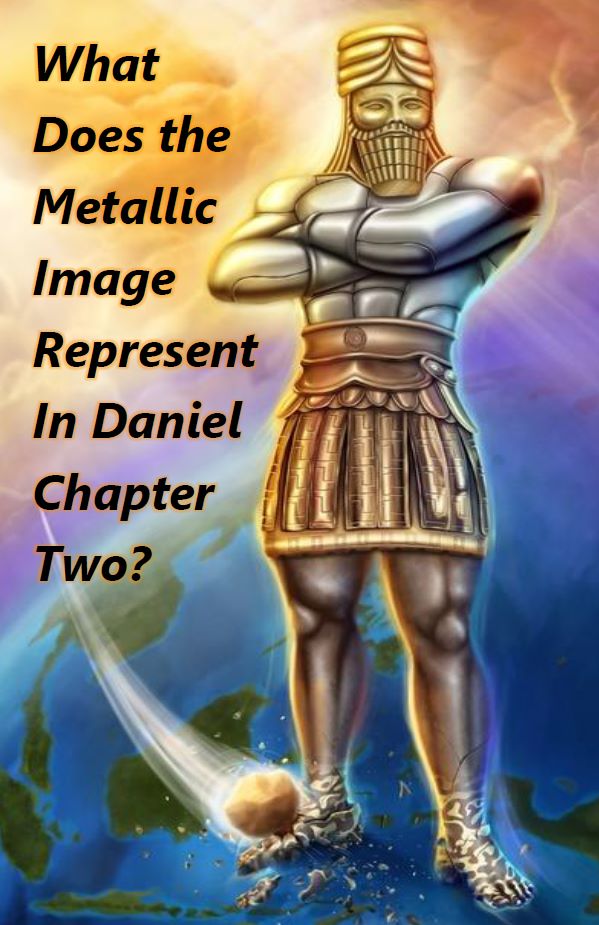If Sin is Not a Legal Matter But a Deadly Disease, Why Do We Need Forgiveness?
 When most people think of the word “sin” they immediately think of immoral actions such as lying, stealing, and murdering etc. Then, in order to be free from an imposed legal penalty (i.e. death), one must ask God for forgiveness. If you have read the material on this website, you most-likely found that I define sin as a deadly disease that needs a proper diagnosis from the Great Physician so He can heal us. However, although sin is a deadly disease, this disease does infect our moral thinking and actions which, when convicted, would arouse asking for forgiveness from those whom you have injured. But exactly where does forgiveness come into the picture when dealing with the root of the problem, namely the actual disease that can lead to immoral actions? Surely, when one goes to the doctors and receives a diagnosis of a terminally ill disease, the first thing on one’s mind is not asking for forgiveness. Forgiveness is a legal matter, not a healing matter …. right?
When most people think of the word “sin” they immediately think of immoral actions such as lying, stealing, and murdering etc. Then, in order to be free from an imposed legal penalty (i.e. death), one must ask God for forgiveness. If you have read the material on this website, you most-likely found that I define sin as a deadly disease that needs a proper diagnosis from the Great Physician so He can heal us. However, although sin is a deadly disease, this disease does infect our moral thinking and actions which, when convicted, would arouse asking for forgiveness from those whom you have injured. But exactly where does forgiveness come into the picture when dealing with the root of the problem, namely the actual disease that can lead to immoral actions? Surely, when one goes to the doctors and receives a diagnosis of a terminally ill disease, the first thing on one’s mind is not asking for forgiveness. Forgiveness is a legal matter, not a healing matter …. right?
The Meaning of “Forgive”
Let’s look at the word “forgive.” The word is composed of “for” and “give,” which implies “to give for.” In order for God to forgive sin, He must give for sin. But what does God give for sin? In Romans 3:25 we read that God declares “his righteousness for the remission of sins” (King James Version). In 2 Corinthians 5:21 it says, “Christ was without sin, but for our sake God made him share our sin in order that in union with him we might share the righteousness of God” (Good News Translation). Therefore, when the Lord forgives—gives for—sin, He gives righteousness for sin. By comparing Romans 3:10, which says, “There is no one righteous, not even one”, with Psalm 11:7, “For the LORD is righteous”, we see that God alone is righteous. Thus, when God gives righteousness for sin, the only righteousness that God gives, or can give, for sin is His own— “the righteousness of God.” This is why Jesus tells us to “Seek ye first the kingdom of God, and His righteousness” for “all our righteousnesses are as filthy rags” (Matthew 6:33; Isaiah 64:6).
to give His righteousness for your sin
What Is God’s Righteousness?
God’s righteousness is His very own life as transcribed in His Law:
“Listen to Me, you who know righteousness, You people in whose heart is My law …” (Isaiah 51:7)
To receive God’s righteousness is to receive His Law into your heart. When we receive His Law in our hearts, we are filled with His character of selfless love:
“Then one of them, a lawyer, asked Him [Jesus] a question, testing Him, and saying, ‘Teacher, which is the great Commandment in the Law?’ Jesus said to him, ‘You shall love the Lord your God with all your heart, with all your soul, and with all your mind.’ This is the first and great Commandment. And the second is like it: ‘You shall love your neighbor as yourself.’ On these two Commandments hang all the Law and the Prophets.” (Matthew 22:35-40)
All the Law and the Prophets hang (or depend) upon loving God and loving others. In other words, righteousness is an others-centered life. Righteousness is God’s everlasting tender loving kindness to others. As Paul said, “For all the Law is fulfilled in one word, even in this: ‘You shall love your neighbor as yourself’” (Galatians 5:14). When Scripture says that Jesus “fulfilled” the Law (Matthew 5:17), it means He lived out the Law the way it should be. Jesus told Philip, “If you’ve seen Me, you've seen the Father” (John 14:9). Jesus’ whole life on earth was a revelation of the righteousness of God.
Jesus Came to Heal Us from Sin
When the angel Gabriel visited Joseph, he said, “Joseph, son of David, do not be afraid to take to you Mary your wife, for that which is conceived in her is of the Holy Spirit. And she will bring forth a Son, and you shall call His name Jesus, for He will save His people from their sins” (Matthew 1:20-21). The word, “save” here is σῴζω (sózó), which can carry the meaning of “to save a suffering one (from perishing), e. g. one suffering from disease, to make well, heal, restore to health” (Thayer's Greek Lexicon). The verse could very well be translated, “for He will heal His people from their sins.”
the prophet Jeremiah wrote, “Heal me, O Lord, and I shall be healed; Save me, and I shall be saved, for You are my praise” (Jeremiah 17:14)
 One example of this is when Jairus came to Jesus asking Him to heal his daughter; “Come and lay Your hands on her, that she may be healed [sózó], and she will live” (Mark 5:23). Jesus often connected His acts of healing with forgiveness. When four men arrived carrying a paralyzed man on a mat, the first thing Jesus says to him is “My child, your sins are forgiven” (Mark 2:5). Here we see that, in order for this man’s faith to grow, and for any reconciliation to take place, Jesus had to first heal his mind from the lie that his handicap was a direct punishment from God. The man never verbally asked for forgiveness, yet his sins, as far as God was concerned, were forgiven. This then led to his physical healing. Commenting on this, E.J. Waggoner writes:
One example of this is when Jairus came to Jesus asking Him to heal his daughter; “Come and lay Your hands on her, that she may be healed [sózó], and she will live” (Mark 5:23). Jesus often connected His acts of healing with forgiveness. When four men arrived carrying a paralyzed man on a mat, the first thing Jesus says to him is “My child, your sins are forgiven” (Mark 2:5). Here we see that, in order for this man’s faith to grow, and for any reconciliation to take place, Jesus had to first heal his mind from the lie that his handicap was a direct punishment from God. The man never verbally asked for forgiveness, yet his sins, as far as God was concerned, were forgiven. This then led to his physical healing. Commenting on this, E.J. Waggoner writes:
“This miracle was wrought for the express purpose of illustrating the work of forgiving sin, and demonstrating its power. Jesus said to the palsied man, ‘Arise, take up thy bed, and go unto thine house,’ that they and we might know his power to forgive sin. Therefore the power exhibited in the healing of that man is the power bestowed in the forgiveness of sin.” (E.J. Waggoner, The Power of Forgiveness)
A little later, Jesus and His disciples were attending a feast hosted by Levi (Matthew). When the Scribes and Pharisees saw this, they complained saying, “Why do You eat and drink with tax collectors and sinners?” Again, Jesus answered them in the language of healing: “Those who are well have no need of a physician, but those who are sick. I have not come to call the righteous, but sinners, to repentance” (Mark 5:30-32).
We Are Healed By His Life
This should add some clarity to Paul’s words to the Romans:
“For if when we were enemies we were reconciled to God through the death of His Son, much more, having been reconciled, we shall be saved by His life.” (Romans 5:10)
Take note we are saved by Jesus’ LIFE! The word “saved” here is again the word sózó— “We shall be healed by His life.” Many believe that when Scripture says we are saved “by the blood of Christ”, it means His death, but take heed that, “the LIFE is in the BLOOD” (Leviticus 17:11).
Jesus was given the very life of God: “For as the Father hath life in Himself; so hath He given to the Son to have life in Himself” (John 5:26). When Paul says, “we shall be saved [healed] by His life”, it means Jesus’ present life dwelling in the believer. When we receive Christ, we receive the life (righteousness) of God given to Him:
“This is the testimony: God has given us eternal life, and this life is found in His Son. The person who has the Son has this life. The person who does not have the Son of God does not have this life.” (1 John 5:11-12, International Standard Version)
This is what God gives for sin. He gives His righteousness (i.e., His eternal life). When we receive eternal life, we receive His righteousness because righteousness is the only life that is eternal. Scripture says, “All unrighteousness is sin” (1 John 5:17) and “sin is the transgression of the Law” (1 John 3:4) which is a transcript of God’s righteousness. Therefore, sin is the transgression of God’s righteousness, which only leads to death “For sin pays its wage—death” (Romans 6:23a, Good News Translation). However, “God's free gift is eternal life in union with Christ Jesus our Lord” (Romans 6:23b, Good News Translation). The free gift is “eternal life” — God’s righteousness— through Christ; for “In the way of righteousness is life, and in its pathway [or lifestyle] there is no death” (Proverbs 12:28).
The Remedy is Absolutely Free
This righteousness is absolutely free. It is a gift. No need for you or anyone else to pay for it. If anyone else pays for this gift for you then it is not a free gift; for if God gets paid, it is simply not free. God gave this life to His Son who in return freely gives it to us.
“’There was a certain creditor who had two debtors. One owed five hundred denarii, and the other fifty. And when they had nothing with which to repay, he freely forgave them both. Tell Me, therefore, which of them will love him more?’ Simon answered and said, ‘I suppose the one whom he forgave more.’ And He said to him, ‘You have rightly judged.’” (Luke 7:41-43, New King James Version)
In this allegorical story, Jesus is describing the character of our heavenly Father who “freely” gives for our sins. In turn (in repentance) we begin to love Him— “we love Him because He first loved us” (1 John 4:19). All of our enmity against Him goes into remission “Because the carnal mind is enmity against God: for it is not subject [submissive] to the Law of God, neither indeed can be” (Romans 8:7). However, “For God has done what the Law, weakened by the flesh, could not do: by sending His own Son in the likeness of sinful flesh, and to deal with sin, He condemned sin in the flesh, so that the just requirement [righteousness] of the Law might be fulfilled in us, who walk not according to the flesh but according to the Spirit” (Romans 8:3-4, New Revised Standard Version).
What is it that the Law cannot do? Just as an x-ray machine does not cure the hidden problem now seen, the Law cannot save (heal/make one righteous), but only diagnose the problem. Paul said, “I would not have known sin except through the Law. For I would not have known covetousness unless the Law had said, ‘You shall not covet’” (Romans 7:7, New King James Version); “For no one is put right in God's sight by doing what the Law requires; what the Law does is to make us know that we have sinned” (Romans 3:20, Good News Translation).
As you can see, Jesus did not come to pay God off in order to let us go free from some legal penalty. (For more info on this point, see the book Did God Kill Jesus Instead of Killing Us?). God gave us His life through His Son as the Remedy to cure us from the disease of sin (i.e., our enmity against God, resulting in fear and selfishness). We receive this Remedy through the Holy Spirit, which is the very presence, life, and attitude of Jesus:
“And because we are His children, God has sent the Spirit of His Son into our hearts, prompting us to call out, ‘Abba, Father.’ Now you are no longer a slave [to sin/enmity against God] but God’s own child. And since you are His child, God has made you His heir.” (Galatians 4:3-4, New Living Translation, words in brackets added)
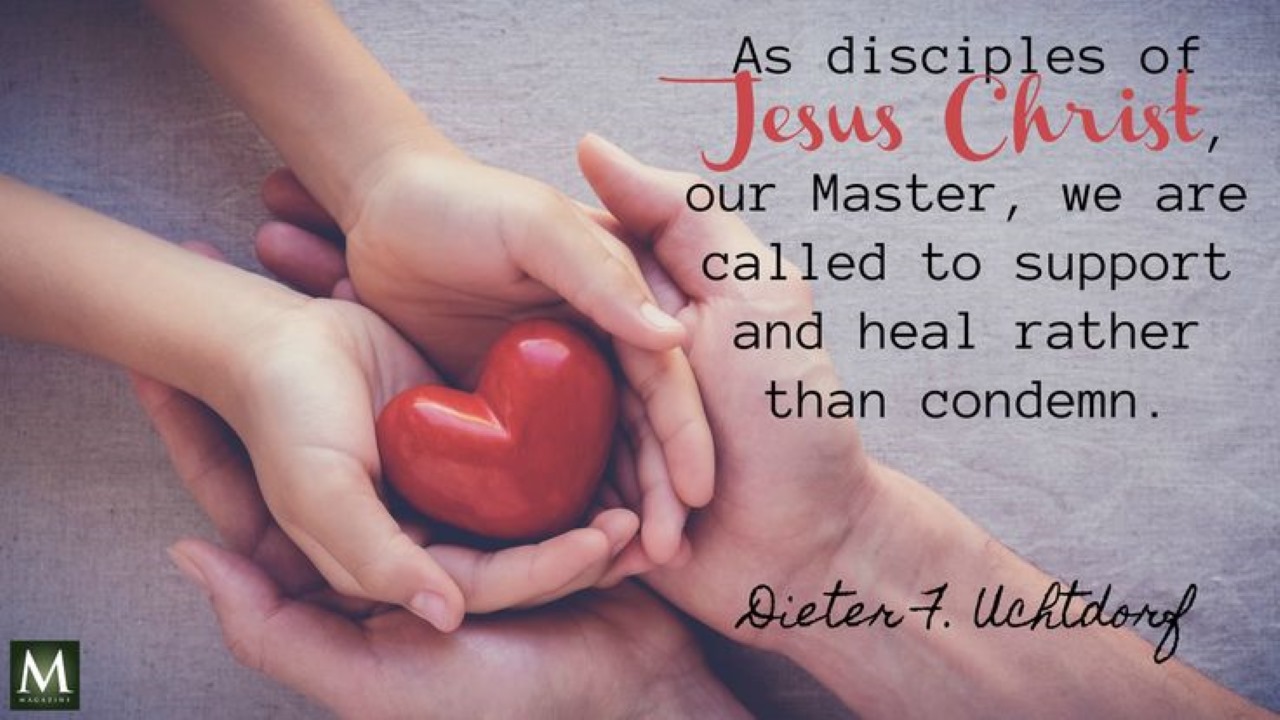 When we receive this free gift of “the Spirit of His Son into our hearts” by faith (i.e., by simply believing and accepting it), we receive the righteousness of God. Our sinful enmity goes into remission and we become “partakers of the divine nature, having escaped the corruption that is in the world through lust” (2 Peter 1:4).
When we receive this free gift of “the Spirit of His Son into our hearts” by faith (i.e., by simply believing and accepting it), we receive the righteousness of God. Our sinful enmity goes into remission and we become “partakers of the divine nature, having escaped the corruption that is in the world through lust” (2 Peter 1:4).
“So, as the elect of God, holy and beloved, put on a heart of compassion, kindness, humility, gentleness, and patience; bearing with one another, and graciously forgiving each other, whoever has a complaint against anyone, just as the Lord graciously forgave you, so also should you.” (Colossians 3:12-13)
How did the Lord forgive you? Freely! No payment needed. Therefore, when you have the Remedy of His righteousness living in and through you by the indwelling Spirit of Jesus, you will be healed from sin and will “love your neighbor as yourself” and thus “treat people the same way you want them to treat you, for this is the Law and the Prophets” (Matthew 7:12, New American Standard Bible).
Moving From a Judicial View of Forgiveness to the Healing View
 Can you see that forgiveness has a broader meaning than many suppose? The common idea is that when God forgives sin the change is in Himself, and not in the man. It is thought that God finally ceases to hold anything against the one who has sinned. But this is to imply that God had a hardness against the man, which is not the case. God is not a man; He does not cherish enmity, nor harbor a feeling of revenge. It is not because He has a hard feeling in His heart against a sinner that He forgives him, but because the sinner has something in his heart. God is all right, the man is all wrong, therefore God forgives the man, that he also may be all right.
Can you see that forgiveness has a broader meaning than many suppose? The common idea is that when God forgives sin the change is in Himself, and not in the man. It is thought that God finally ceases to hold anything against the one who has sinned. But this is to imply that God had a hardness against the man, which is not the case. God is not a man; He does not cherish enmity, nor harbor a feeling of revenge. It is not because He has a hard feeling in His heart against a sinner that He forgives him, but because the sinner has something in his heart. God is all right, the man is all wrong, therefore God forgives the man, that he also may be all right.
When we go see a doctor, although we do expect him/her to give us constructive guidance (a prescription) on how to get well, we do not expect him/her to scold and condemn us. We should look at our heavenly Father the same. He is not there to scold and condemn, but to constructively guide, protect, and heal.
When God gives the promise that He “will abundantly pardon,” He adds, as if the meaning of that promise exceeded all that we could comprehend: “My thoughts are not your thoughts, neither are your ways My ways, saith the Lord. For as the heavens are higher than the earth, so are My ways higher than your ways, and My thoughts than your thoughts” (Isaiah 55:7-9).
It is not only forgiveness for sin, but reclaiming from sin. It is the outflow of redeeming
love that transforms the heart
David had the true conception of forgiveness when he prayed:
“Have mercy upon me, O God, according to thy lovingkindness: according unto the multitude of thy tender mercies blot out my transgressions. Wash me throughly from mine iniquity, and cleanse me from my sin … Create in me a clean heart, O God; and renew a right spirit within me.” (Psalm 51:1-2, 10)
And again he says;
“As far as the east is from the west, so far hath He removed our transgressions from us.” (Psalm 103:12)
There is life in the words of God. Jesus said, “The words that I speak unto you, they are spirit, and they are life” (John 6:63). The word received in faith brings the Spirit and the life of God to the soul. So when the penitent soul hears the words, “Son, be of good cheer, your sins are forgiven,” and receives those words as for living words of the living God, he is a different man, because a new life has begun in him. It is the power of God’s forgiveness, and that alone, that keeps him from sin. If he continues in sin after receiving pardon, it is because he has not grasped the fullness of the blessing that was given him in the forgiveness of his sins.
“Mark two points, we have redemption through Christ's blood, and this redemption is the forgiveness of sins. But the blood is the life. See Gen. 9:4; [Lev. 17:11]; Rev. 17:13, 14. Therefore Col. 1:14 really tells us that we have redemption through Christ's life. But does not the Scripture say that we are reconciled to God by the death of his Son? It does, and that is just what is here taught. Christ "gave himself for us, that he might redeem us from all iniquity." Titus 2:14. He "gave himself for our sins." Gal. 1:4. In giving Himself, He gives his life. In shedding His blood, He pours out His life. But in giving up His life, He gives it to us. That life is righteousness, even the perfect righteousness of God, so that when we receive it we are "made the righteousness of God in Him." It is the receiving of Christ's life, as we are baptized into His death, that reconciles us to God. It is thus that we "put on the new man which after God is created in righteousness and true holiness," after the image of Him that created him." Eph. 4:24; Col. 3:10. God forgives sin by taking it away. He justifies the ungodly by making him godly. He reconciles the rebel sinner to himself by taking away his rebellion, and making him a loyal and law-abiding subject.” (E.J. Waggoner, The Power of Forgiveness, words in brackets added)
Conclusion
The human perception of forgiveness is that when a person violates the law of goodness towards you and does not treat you or those you love correctly, there is a strong desire for justice that manifests in some penalty on the transgressor. The one violated changes in their attitude toward the transgressor. Forgiveness in this context is the letting go of the feelings of anger and bitterness towards the transgressor. The record of their wrongdoing is placed into the background but not forgotten in case the person might transgress in the future. Life returns to normal, and the wrongdoing is forgotten as long as the person does not transgress again. The record of sin is not completely forgotten in order to protect us from possible future violations.
God’s forgiveness is completely different. He does not change in His love for us when we transgress (Malachi 3:6). When God forgives us and we believe it, we are the ones changed. There is life in the forgiving Word of God. When God forgives, belief in that forgiveness brings new life into the soul to help prevent the sinner from falling again (1 John 1:9).
Understanding true forgiveness is vital to understand how we can overcome sin. It is also vital to understanding the judgment of God for we read:
“Love is patient and kind. Love is not jealous or boastful or proud or rude. It does not demand its own way. It is not irritable, and it keeps no record of being wronged.” (1 Corinthians 13:4-5, New Living Translation)
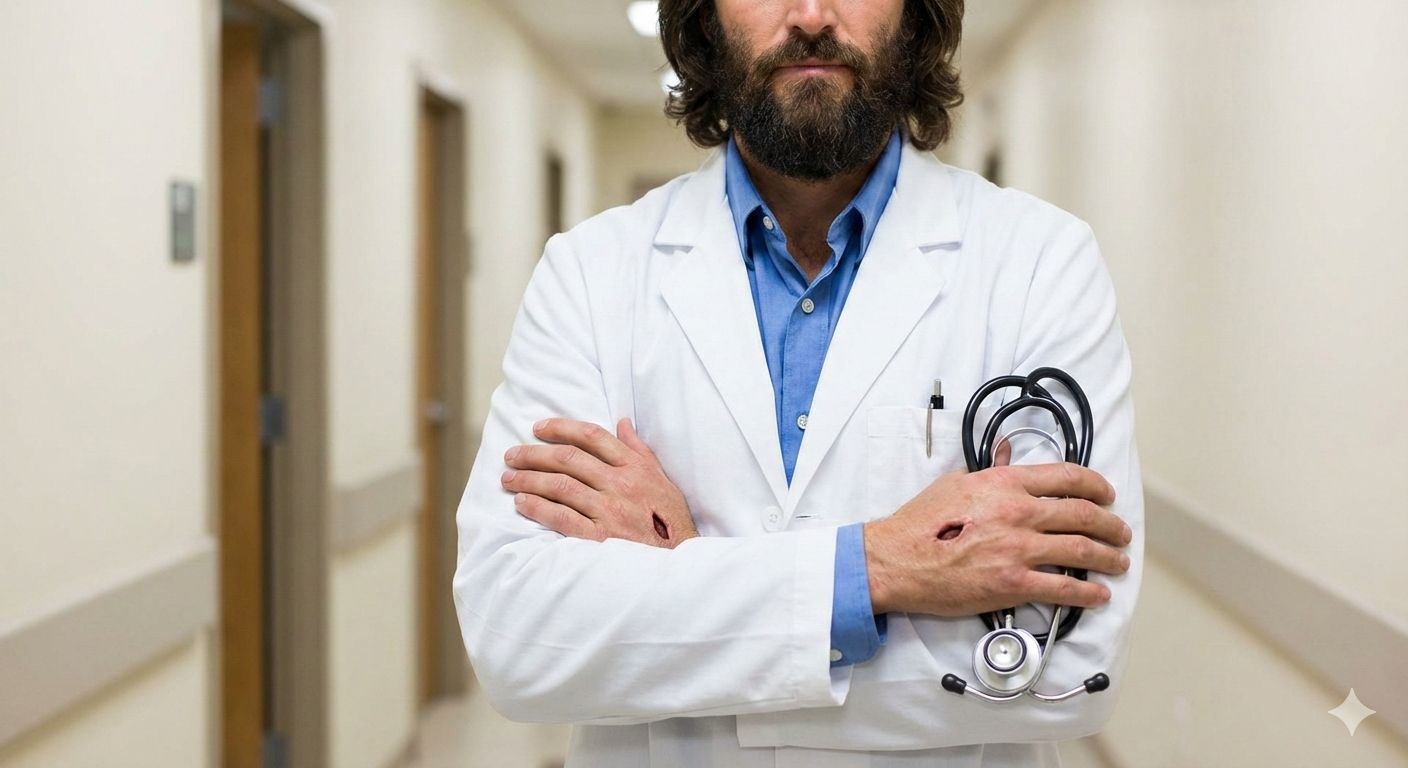 Love keeps no inventory of wrongs done against it. Let us lay down our inventory of the wrong done against us by others and forgive them as God has forgiven us. Won't you come to Jesus to be healed? No appointment necessary nor copay needed—
Love keeps no inventory of wrongs done against it. Let us lay down our inventory of the wrong done against us by others and forgive them as God has forgiven us. Won't you come to Jesus to be healed? No appointment necessary nor copay needed—
The Doctor will see you now!
For a deeper understanding of God's forgiveness, download the FREE book, Biblical Forgiveness.

